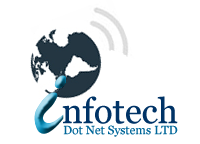Event Management System (EMS)
Transform Your Event Planning with an Event Management System (EMS)
Organizing an event, whether it’s a small corporate meeting or a large-scale conference, can be a daunting task. From managing registrations and coordinating logistics to ensuring that attendees have a memorable experience, the process involves countless moving parts. This is where an Event Management System (EMS) can become your best ally.
What is an
Event Management System?

But why should you invest in an EMS, and how can it revolutionize your event planning? Let’s break it down.
The Key Benefits of Using an Event Management System
1. Simplified Event Registration and Ticketing
Managing registrations can be a time-consuming task, especially when handling large numbers of attendees. An EMS simplifies this by providing a seamless online registration process that allows attendees to sign up quickly and securely. Additionally, EMS platforms often offer customizable ticketing options, including tiered pricing and discount codes, making it easier to manage multiple ticket types and sales in real-time.
2. Efficient Attendee Management
Gone are the days of manually tracking attendee details on spreadsheets. With an EMS, you can easily store and manage attendee data, track registration statuses, send automated reminders, and even facilitate digital check-ins on the day of the event. This reduces administrative overhead and ensures that no detail falls through the cracks.
3. Centralized Event Logistics
Planning an event involves coordinating multiple factors—schedules, venues, vendors, speakers, and more. An EMS provides a central hub to manage all these logistics in one place. You can create schedules, assign tasks to team members, book venues, and communicate with vendors directly through the platform.
4. Enhanced Attendee Engagement
A good EMS isn’t just about planning; it also helps you engage your attendees before, during, and after the event. Some systems allow for networking opportunities between attendees, while others enable live polling, Q&A sessions, and feedback collection. This ensures that attendees remain engaged and connected throughout the event, whether it’s in-person, virtual, or hybrid.
5. Streamlined Marketing and Promotion
Promoting your event is critical to its success, and EMS platforms come equipped with built-in marketing tools to help you spread the word. From email marketing campaigns to social media integration, you can effectively promote your event to the right audience. Some systems even allow you to create a dedicated event website or landing page, further boosting visibility.
6. Data-Driven Insights with Advanced Reporting
Post-event analysis is crucial for understanding what worked and what didn’t. An EMS provides detailed reports on key metrics like registration numbers, ticket sales, attendee demographics, session engagement, and feedback. This data can help you improve future events, fine-tune your marketing strategies, and better understand attendee behavior.
Choosing the Right Event Management System
While the benefits of an EMS are clear, it’s important to choose the right platform for your needs. Here are a few things to consider:
- Ease of Use: Look for a system that has an intuitive interface and doesn’t require extensive training.
- Scalability: Choose a platform that can handle both small and large events as your needs grow.
- Customization: Ensure the system allows you to customize registration forms, emails, and event pages to match your brand.
- Support for Virtual/Hybrid Events: With the rise of virtual events, it’s essential to choose a system that supports live streaming, virtual networking, and engagement tools.
- Cost: Make sure the platform fits within your budget while still offering the features you need.
The Future of Event Management
In today’s fast-paced world, having a comprehensive Event Management System can be a game-changer. It not only helps you organize more efficient and successful events but also provides a superior experience for attendees. Whether you’re managing corporate events, conferences, trade shows, or even virtual gatherings, an EMS is the key to transforming how you plan and execute events.
As technology continues to advance, we can expect EMS platforms to evolve with new features like AI-driven insights, more personalized attendee experiences, and deeper integrations with other business tools. The future of event planning is bright—and digital.
CONCLUSION
Incorporating an Event Management System into your event planning strategy is no longer a luxury; it’s a necessity. From reducing administrative workload to enhancing the attendee experience, an EMS streamlines the entire process and ensures that your events run smoothly from start to finish.
So, if you’re looking to take your event planning to the next level, it’s time to explore the world of EMS and discover how it can revolutionize your next event.



